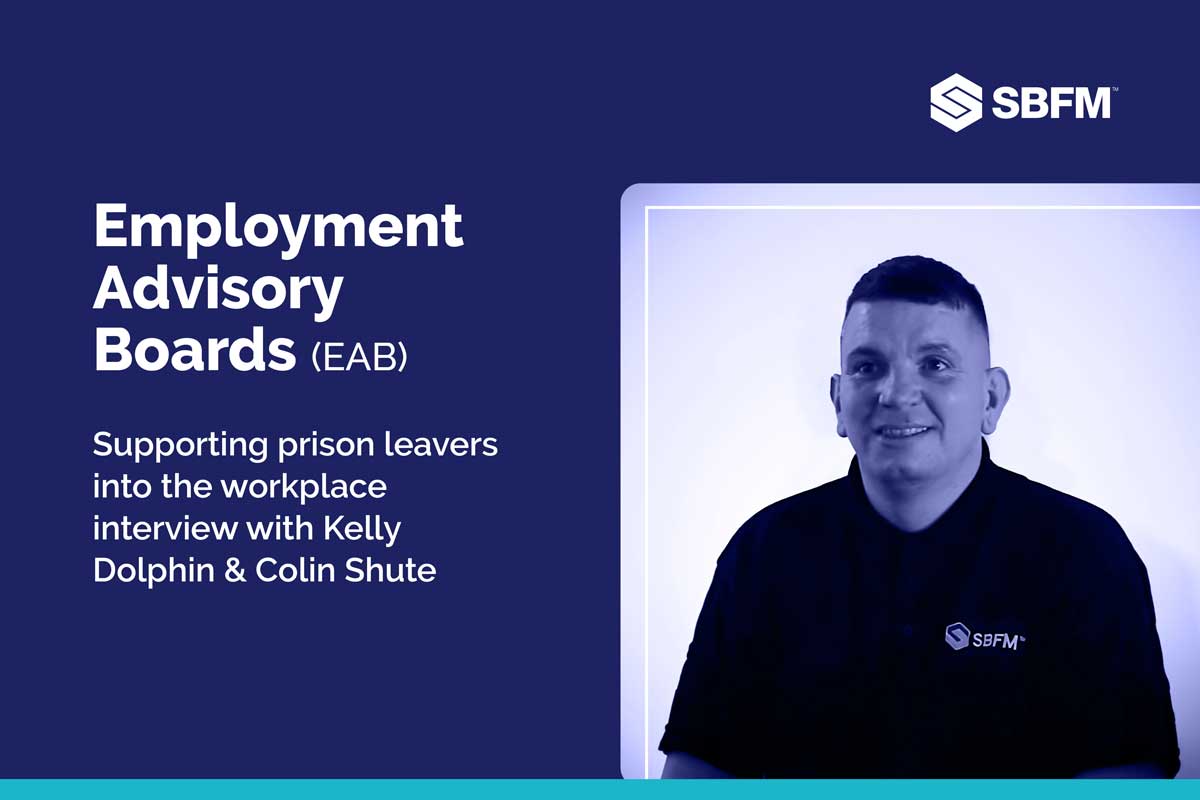- July 10, 2023

We are delighted to have been invited onto the Government’s Employment Advisory Board (EAB) as part of a programme to support the rehabilitation of prison leavers in the UK.
Despite much progress being made in our industry when it comes to Equality, Diversity & Inclusion (ED&I), the unfortunate truth is that individuals with a criminal record often face closed doors when it comes to social mobility.
Research from Working Chance recently revealed that 30% of employers would automatically exclude candidates with unspent convictions, despite only 15% having an official policy to do so. This highlights the ongoing prejudice faced by people with criminal records, impeding their journey towards reintegration and personal growth.
Our Founder and Group CEO Colin Shute, and People and Social Impact Director, Kelly Dolphin, share insights into the FM industry’s role in prisoner rehabilitation and the critical role that EABs have to play in the reintegration of prison leavers into work and society.
Can you tell us more about Employment Advisory Boards (EAB), the role they play and the purpose they serve in supporting ex-offenders?
CS: EABs were the brainchild of James Timpson OBE, Chief Executive of the Timpson Group. They were successfully rolled out and expanded with the support of the Timpson Foundation.
They are supported by prison employment leads to steer and guide the prison and provide a focus on creating a long-term positive culture of employment, ensuring prisoners are ‘job ready’ on release. Ultimately, it’s all about linking prison leavers with sustainable employment opportunities and the wider labour market.
KD: EABs are like the missing puzzle piece that brings prisons, prison leavers, and business leaders together. With their expertise, business figures on EABs provide valuable insights on the skills, qualifications, and training needed to help prisoners get ready for jobs when they are released.
They play a key role in helping prisoners bridge the gap and prepare for a successful transition into the workforce and reintegration into society.
How do EABs support prisons and prison leavers in the UK?
CS: The role of EABs is so important in reducing reoffending and breaking the cycle of crime. Too often prison leavers are released with nowhere to go, and in many cases become homeless. That must change. They need security and stability in order to rehabilitate, and the EABs provide just that.
A lot of people leave prison and re-enter communities alone. It can be a very lonely and confusing existence. This isn’t about simply filling vacancies. It’s about creating a strategy for inmates to help forge a career and a new life. The EABs play a central supporting role in achieving this goal.
KD: For us, having an involvement with EABs is a genuine win-win outcome as it addresses deficiencies in skill supply across multiple sectors, at the same time building a more secure future for individuals and reducing the likelihood of them engaging in criminal activities.
For us, being involved with EABs is a real win-win situation. It tackles the skill shortages that many sectors are facing, while also creating a more secure future for individuals, and reducing the likelihood of them getting involved in criminal activities.
With ex-prisoners who have a job to go to 9% less likely to go on to reoffend, it’s a win for society and a win for individuals, paving the way for a brighter future for everyone involved.
What is SBFM’s involvement with the EABs, and the UK’s prisons?
CS: As part of our work with the EAB, we attend quarterly meetings with the prison governor, the head of reducing reoffending, the prison employment lead, training providers, and New Futures Network, which also aims to broker partnerships between prisons and employers.
KD: In total, SBFM now works closely with 10% of UK prisons, including HMP Wealstun and Feltham Young Offenders Institution, a prison for male juveniles and a young offenders institution. The company also hosts ‘careers talks’ in the prisons to share expertise and help build trust with inmates.
Do you believe employers are missing out on an untapped talent pool by overlooking those with criminal records?
CS: Business leaders tend to underestimate how many people there are with prior convictions. It’s a very tight labour market at the moment and companies are struggling to recruit, but many are still choosing to shut out the nearly 12 million people who have criminal convictions in the UK.
KD: As a business we are already seeing the positive impact that employing prison leavers can have. We have found them to be reliable, motivated and trustworthy employees within our business and are already seeing some fantastic success stories through our work with the EAB.
One such story in Niall’s. Before joining SBFM, Niall had faced repeated rejection, and even after securing jobs, he encountered a number of non-inclusive environments where he felt undervalued as an employee.
The passion, commitment, and enthusiasm he has brought to our business, has seen him break down barriers and thrive in his new role and we couldn’t be happier. His journey is just the beginning of the incredible things we’ve been working on behind the scenes and the first of many success stories, and we can’t wait to share more very soon.
To watch Niall’s story, click here 🔽
